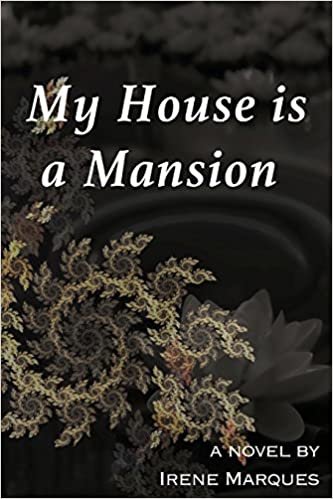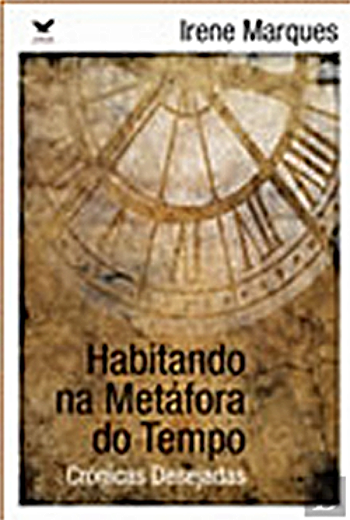My House is a Mansion is a spiritual and sexual coming of age story explores issues of personal and collective identity, mythical and mystical understandings of self, world and universe, gender, race and class. Amélia, the protagonist, embarks on a quest of self-discovery, travelling between continents in real and symbolic terms finding personal growth and enlightened awakening in the process. The novel abounds in transcultural references, poetic lyrical prose, ecstatic visions, and profound philosophical investigations on what it means to be a woman (and a person), creating an emotionally powerful journey of self-exploration.
Reviews/Blurbs
“My House is a Mansion is a daring, poetic novel ‘in different tongues.’ The protagonist, Amélia, leaves her Portuguese village to travel the world and in each new place finds a lover and has wild, ecstatic dreams, full of bodily delights, bursting with feats of terrifying and awesome reproduction, and brimming with the disturbing proximities of primal desire and looming violence. But for Amélia, travel also carries with it the mighty nautical past of her Iberian homeland, where the pure desire to experience foreign lands is also smeared in the blood of empire like the mattress of her first lover’s bed. We have ‘to face many monsters, who not unlike Adamastor, were hiding under the water and trying to lure [us] to the bottom of their lives,’ but, in the end, we return home as we must, wet and exhausted but with a few more of the missing links connected.” — Carlo Matos, author of The Secret Correspondence of Loon & Fiasco and We Prefer the Damned.
“My House is a Mansion is a moving portrayal of life which takes root in the intimate quests of Amélia, the protagonist, and is packed with insights that transcend time and space. Her travels intersect in ways that carry her through an emotional performance fusing themes of restlessness, moral stances, identity construction, memory, social and cultural positionings and the search for meaning. The complexity of this girl’s soul is explored with a rich and colorful imagination. In a beautifully crafted prose, Irene Marques’s novel keeps the reader enthralled with the superbly deft story of a girl of Portuguese descent.” — Professor Irene Maria F. Blayer, Brock University
Habitando na Metáfora do Tempo
Sample
“Chamo-me Lúcia. Lúcia Lucrécia. Do Carmo. Pereira. Dos Santos. Lúcia Lucrécia do Carmo Pereira dos Santos. Nome longo e de história. Como bica de água que leva ao Parque Mayer onde abundarão rosas de adro. Abertas à flor de Deus, ao pão dos famintos. À alma das borboletas. À passagem secreta do vento que leva e traz mensagens das mourarias e das sagas de amores violentos, roubados à sombra da noite e conquistados das mãos dos inimigos que nos invadiram a terra, durante séculos e séculos, anunciando outras preces e catedrais. Estou a fugir da minha história, mas nem tanto, é que sempre é preciso prelúdio para adoçar a fruta verde ou seca que vem depois, desvendada no meio da vida e contada com as metáforas que se pode. Que nos chegam em dias cansados e já tão distantes da ideia que tínhamos quando éramos novas e andantes na plena seiva da vida, caminhando com passos decididos porque a verdade seria encontrada no fundo da linha – depois da última passada.” — Lamento de uma mulher infértil
Praise/Reviews
“Literature can certainly have a sex and it always has a gender, even if if in the case of Habitando na metáfora do tempo the gender is indeterminate. Textuality is revealed through the eroticism of language, a language that can be seen under the angle of poetry, or poetic chronicle, or philosophical poetry, or even as poetic-prosaic philosophizing, bringing doubt to the textual matrix. Literature then becomes equivalent to the “primal orgasm” […] where we detect the “Fall of the Angel” due to sin, a pressed down Catholicism returning eternally in this writing […] creating a space for a symbolic Salome…” — Professor Pires Laranjeira, Universidade de Coimbra, Portugal (translated by Irene Marques)
When a young woman is subjected to a violent attack, the impact of colonialism, patriarchy, and who we choose to love are thrown into sharp relief. Daria is an immigrant woman living in Toronto, and as she begins to tell her story, the reader is pulled into different worlds, travelling to various timeframes and locations in an unending awe-inspiring Matryoshka play, where one story leads to another and another and another. The novel explores the stories of multiple characters—the Indo-Portuguese-Canadian sexual predator; the idealist and resilient Mozambican freedom fighter; the wondrous Iberian Roma circus; the Christianized Muslims and Jews; the mystical Nubian master who knows how to capture black matter; the fascist dictator whose ruthless cousin delivers unthinkable punishments inside the closed walls of Tarrafal, the infamous Cape Verdean prison of the Portuguese colonial regime—and countless other personalities, some wretched, some redeemable, some otherworldly, who defend visions and ideals and fight for dignity, power, and recognition.
Moving back and forth between Canada, Portugal, Mozambique, and Cape Verde, Daria is a magical realism historical novel where fact and fiction intermingle to create a spellbinding world of complex political, familial, and cultural dynamics.
Blurbs/Reviews
“Brilliant and captivating, the novel Daria provides a look into the struggles and triumphs of being in a new land. Irene Marques’ writing moves extraordinarily between countries and she masterfully creates scenes of beauty and horror, happiness and sadness and, above all, hope and resilience. Books like this offer the world and invite us to experience other lives. This moving tale of dreams and healing will leave you yearning for the journey to continue long after the last word.”
— Sonia Saikaley, author of The Allspice Bath and A Pink Samurai’s House
“Irene Marques is a brilliant novelist and storyteller. She is endowed with the gift of creating characters and narrating their stories over time and space. Daria is a cerebral novel about Portuguese identity, family, immigration, displacement, and remembering. Personal and poetic, Irene Marques’ aching narrative is a masterpiece of contemporary Portuguese-Canadian fiction, a meditation on human experience in Portugal, Canada, and the former Portuguese colonial empire. It is a necessary book for anyone interested in women’s struggles within and outside of patriarchy, dictatorship, colonialism, anticolonialism, immigration, neoliberalism, and globalization. Daria is a novel that conveys the dreams and the wisdom of those who left home and country.”
— Isabel A. Ferreira Gould, independent scholar
Uma Casa no Mundo tem como pano de fundo uma casa de camponeses da região da Beira Alta: uma casa que sonha em ser mansão e se alastra pelo mundo, ou por vezes fora dele, tentando deslizar no sublime do transcendental, sempre guiada pelo etos de perfeição e realização. Trata-se de um romance que explora acontecimentos históricos específicos decorridos entre os fins do século XIX até depois da Revolução de Abril. Distinguido com o Prémio Imprensa Nacional/Ferreira de Castro 2019.






